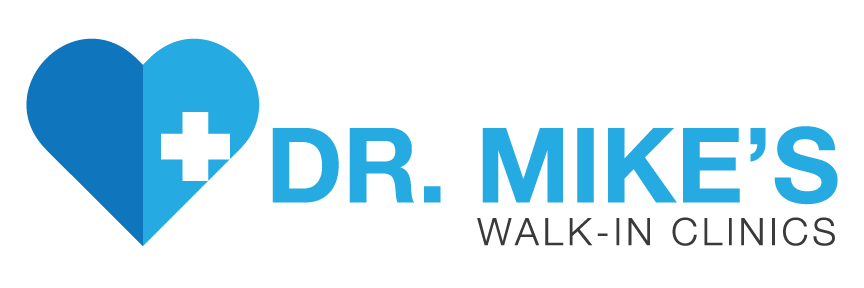Our Blog
A Guide to Men's Health in June and Beyond

Men's Health Month is your chance to take charge of your well-being. The month of June focuses on the health issues that hit men the hardest, reminding you to be proactive about your health. It's time to ditch bad habits and embrace a healthier you.
Keep reading as we empower men with the knowledge and resources they need to take charge of their health, not just in June but throughout the year.
Why Men's Health Matters
According to the Centers for Disease Control and Prevention (CDC), men have a higher prevalence of heart disease, cancer (excluding certain types), unintentional injuries, and chronic lower respiratory diseases. This often stems from a combination of factors, including the following:
- Behavioral Differences: Men are generally less likely to visit doctors for preventive screenings or discuss health concerns, leading to delayed diagnoses and potentially worse outcomes.
- Biological Factors: Men's hormonal makeup may increase the risk of specific diseases. For instance, testosterone levels can influence the development and progression of prostate cancer.
- Social Stigmas: Traditional notions of masculinity can discourage men from seeking help or acknowledging health concerns. The idea that men should be stoic and self-reliant can create a barrier to open communication about health issues.
By prioritizing Men's Health Month and promoting open conversations about health, we can bridge these gaps and empower men to live healthier lives.
Key Health Concerns for Men
Understanding the most prevalent health issues men face is the first step toward prevention and management. Some of the health issues men should keep an eye on include the following:
Heart Disease
Maintaining a healthy weight, eating a balanced diet, exercising regularly, and managing stress are integral to heart health. Men should be particularly aware of risk factors like high blood pressure, high cholesterol, and smoking.
Prostate Cancer
For men over 45, prostate cancer becomes a major concern, following closely behind skin cancer. Regular screenings and early detection are vital. The American Cancer Society recommends that men discuss their risk factors with their doctor at age 45 (or 40 for African American men and men with a family history of prostate cancer) to determine when to begin screenings.
Mental Health
Untreated depression and anxiety can have a significant impact on men's lives. Getting the support that’s needed is a sign of intelligence, not weakness, and signs and symptoms should be looked for so that treatment can be obtained. Common signs of depression in men can include irritability, anger, fatigue, and changes in sleep or appetite.
Diabetes
Compared to women, men have a higher chance of developing type 2 diabetes. Maintaining a healthy weight and engaging in regular physical activity help with diabetes prevention, as they contribute to healthy blood sugar levels.
Chronic Lower Respiratory Diseases
Conditions like chronic obstructive pulmonary disease (COPD) are more common in men. Smoking cessation and avoiding secondhand smoke are important. Early diagnosis and appropriate treatment can help manage COPD symptoms and improve quality of life.
Other Health Concerns
Here's a look at other areas to consider:
- Sexual Health: Men can experience a variety of sexual health issues throughout their lives. Regular checkups and open communication with a doctor are integral.
- Sleep Disorders: Sleep apnea and other sleep disturbances are more common in men. Getting enough quality sleep improves overall health.
- Substance Abuse: Alcohol and drug use can have a devastating impact on men's physical and mental health. You must seek help if you're struggling with addiction.
Strategies for Better Health
Once aware of these challenges, men can take proactive steps towards a healthier life. Here are some practical strategies:
Schedule Regular Checkups
Timely checkups allow your doctor to monitor your overall health, identify any risk factors for specific diseases, and recommend appropriate screenings or interventions.
Prioritize Preventive Screenings
Regular screenings for conditions like prostate cancer and colon cancer can be lifesaving. Discuss your risk factors with the doctor to determine the appropriate screenings and frequency. Early detection of many cancers significantly increases the chances of successful treatment.
Embrace a Healthy Lifestyle
Focus on a balanced diet with plenty of fruits, vegetables, and whole grains. Cut back on sugary drinks and snacks and focus on whole foods. Get regular physical activity (at least 150 minutes of moderate-intensity exercise per week) for overall health and disease prevention. Adequate sleep (7-8 hours per night) can also promote physical and mental well-being.
Manage Stress
Long-term stress can weaken your immune system and contribute to mental health issues like anxiety and depression. Consider relaxation techniques like meditation, yoga, or deep breathing exercises to manage stress effectively. Finding healthy ways to cope with stress can improve your overall well-being and reduce your risk of developing chronic health conditions.
Maintain Healthy Relationships
Strong social connections provide support and contribute to overall well-being. Nurturing relationships with family and friends allows you to share concerns, feel less isolated, and benefit from a sense of belonging.
Don't Ignore Symptoms
Pay attention to your body's signals. Unexplained changes in urination, fatigue, weight loss, or persistent pain can be indicators of underlying health issues. Early detection and treatment can manage many health conditions effectively.
Break the Silence
Openly discuss health concerns with friends, family, and your doctor. Talking openly about health can dispel myths, reduce anxieties, and encourage men to seek professional help when needed.
Become an Advocate for Your Health
Take an active role in understanding your health risks and treatment options. Ask questions, and share any concerns you have with your doctor.
Don't wait another minute to prioritize your health! Men's Health Month is a reminder to address those concerns you might be ignoring.
Dr. Mike's Walk-In Clinic is here for you. Our team is dedicated to men's health concerns, from heart health to sexual wellness. Talk to our experts and unlock a healthier future.
Schedule now!



